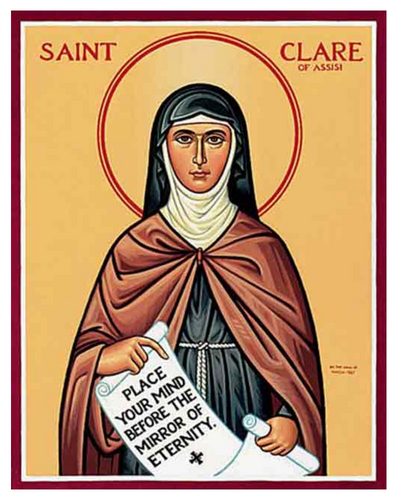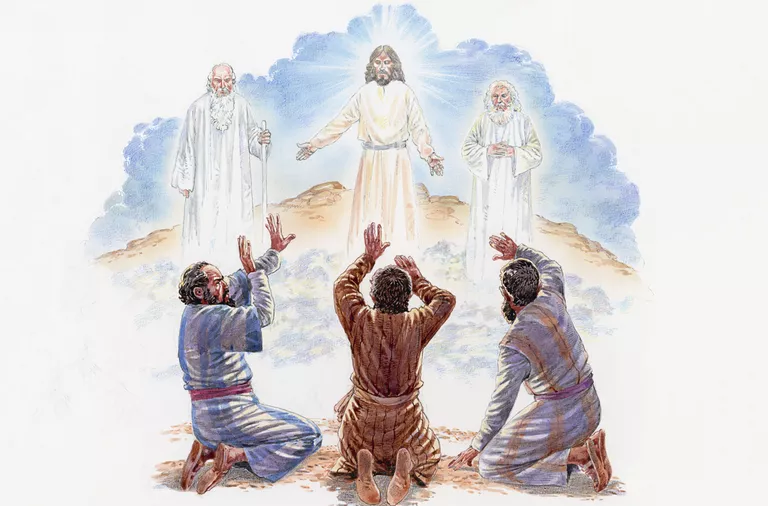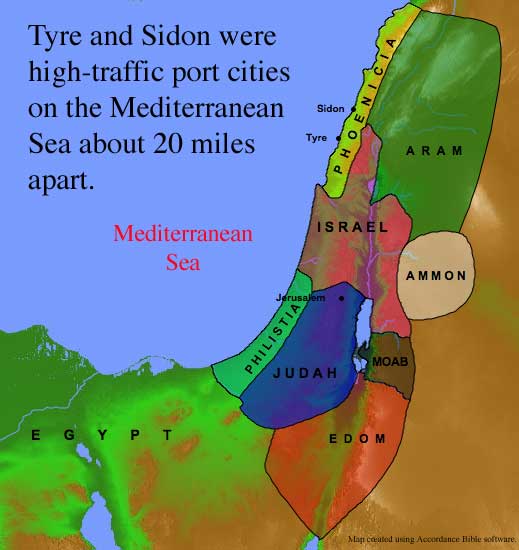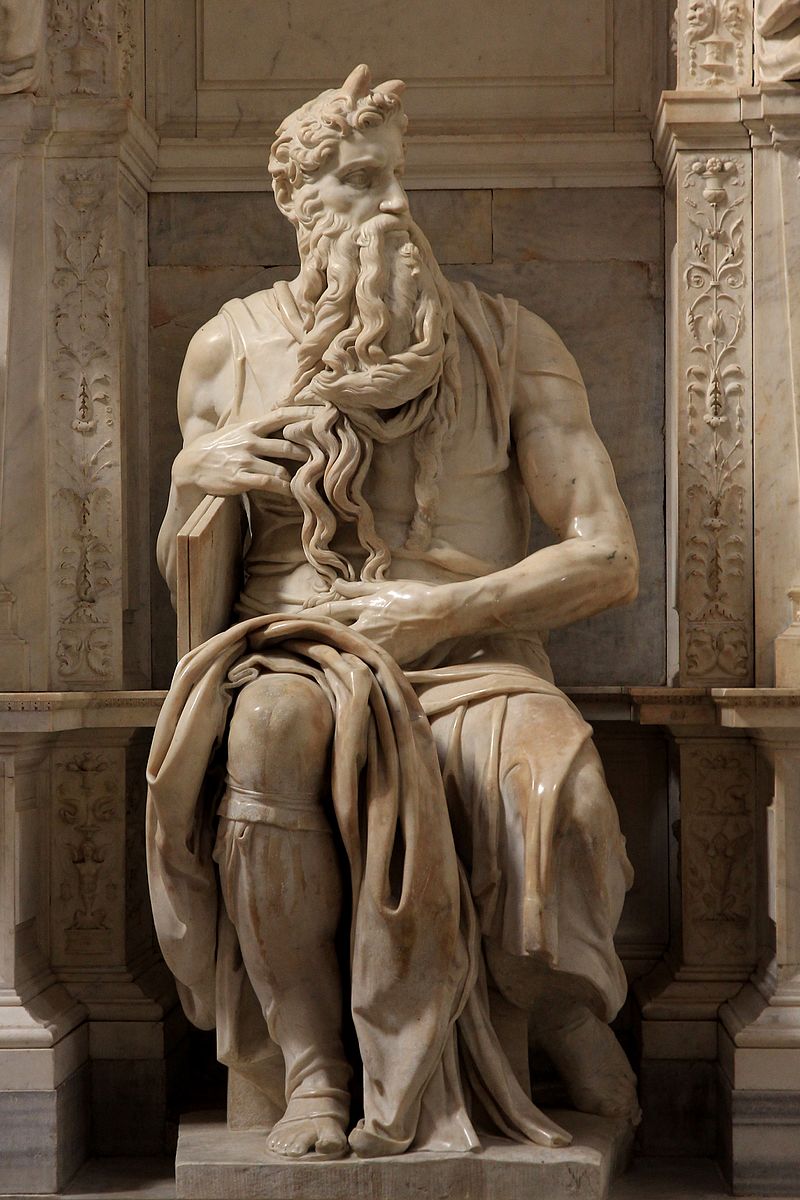The Alleluia Verse from today’s readings:
Alleluia, alleluia.
Receive the word of God, not as the word of men,
but, as it truly is, the word of God.
Alleluia, alleluia.
This is such a great call to attend to the Word for what it is – the Word of God – and therefore be subject to it, rather than it subject to us.
I remember some years ago, about twenty probably, chatting with some Religious Education teaching colleagues who were horrified at my comment that: “No, I don’t think it’s appropriate to use something from Anthony De Mello’s book The Prayer of the Frog as an alternative to scripture for the First Reading at Mass”. The response of “You can’t seriously suggest that poetry or some other piece of meaningful literature can’t be used in this place” was met with “No!” Doesn’t this conversation illustrate for us the need to understand and appreciate the Word for what it is: the Word of God! Our Alleluia verse asks us to do this.
In a couple of schools where I was the Religious Education Coordinator/Director of Religious Education, I tried (mostly with a great lack of success and against some strong opposition) to encourage staff to use the ‘readings of the day’ or prayers from the ‘Mass of the day’ for the times that we prayed together. Among the arguments I used to support this approach, apart from that it would allow us to join in harmony with the rest of the praying Church, was that it is vitally important for a Christian to be formed by the Word of God rather than employing the Word of God to make a point. When we always pick readings to suit a ‘theme’, or select a prayer or reading that ‘says something nice’, then we limit the Word’s capacity to form us, and as a consequence will never grow in the Christian life.
There is great merit in placing ourselves in the presence of the Word across the liturgical year, rather than placing the Word at our disposal across the less ordered nature of our years. To do the former is to let God be God in our lives, while the latter tells God who we’d like God to be.
11th August – The Memorial of St Clare
Link to today’s readings: https://bible.usccb.org/bible/readings/0811-memorial-saintclare.cfm
Today the Church celebrates the Memorial of St Clare (16 July 1194 – 11 August 1253). Clare was born in Assisi and was the eldest daughter of the Count of Sasso-Rossa. As you can imagine she was born into a family of prestige, comfort and wealth, that would have been typical of the aristocracy at that time.
As a teenager Clare heard Francis of Assisi preaching, and in 1212 at the age of 18 travelled with her aunt to meet Francis, and there under Francis’ guidance promised her life to God as an enclosed religious. Initially living as a Benedictine, Clare sought to follow a path of spirituality closer to that of Francis’, and so she founded a group of women known as the Order of Poor Ladies. After her death, and in her honour, in 1263 Pope Urban IV changed the Order’s name to the Order of St Clare.
St Clare leaves us this beautiful prayer:
Place your mind before the mirror of eternity!
Place your soul in the brilliance of glory!
Place your heart in the figure of the divine substance!
And transform your whole being into the image of the Godhead Itself
through contemplation!
So that you too may feel what His friends feel
as they taste the hidden sweetness
which God Himself has reserved
from the beginning
for those who love Him.
We find in this prayer some wonderful parallels with today’s First Reading for the memorial:
‘Brothers and sisters: I consider everything as a loss because of the supreme good of knowing Christ Jesus my Lord. For his sake I have accepted the loss of all things and I consider them so much rubbish, that I may gain Christ and be found in him…’
‘Brothers and sisters, I for my part do not consider myself to have taken possession. Just one thing: forgetting what lies behind but straining forward to what lies ahead, I continue my pursuit toward the goal, the prize of God’s upward calling, in Christ Jesus.’
Imagine downloaded from https://liturgy.co.nz/saint-clare-of-assisi on 07 August, 2021.
A link to today’s readings: https://bible.usccb.org/bible/readings/080921.cfm
Today’s First Reading comes for the Book of Deuteronomy, one of the Old Testament books (Hebrew Scriptures) attributed to Moses. In some ways it is easiest to understand Deuteronomy as the last will and testament of Moses as he and the People of Israel stand on the brink of entering the Promised Land; a land Moses would not live to enter.
Deuteronomy is without much of the escape and journey narrative of the Book of Exodus, and can be read almost in the light Moses thinking to himself: “What are things I must say (again) to the People of Israel”. If read in this light, then the words of today’s First Reading take on even greater impact.
Moses starts this discourse with a reminder to the Israelites of who God is, rather than who God can be reduced to:
• “Think! The heavens, even the highest heavens, belong to the LORD, your God, as well as the earth and everything on it”, and
• “For the LORD, your God, is the God of gods, the LORD of lords, the great God, mighty and awesome.”
The Holy One who brought them up out of Egypt, the Holy One who chose them from among all the nations of the world, is not just some ‘friendly chap’ who happens to be on their side, but is indeed the God of the Universe – worthy to be feared, loved, and served with all their hearts and souls!
I worry…it may have moved a little past worry…when I hear discussion/questions that move too quickly, far too quickly, to the applications of faith, before attending to the foundational nature of the revelation of God (brought to fulfilment in Jesus). This rush frequently causes us to miss this call of Moses, picked up and renewed in the Gospels, to first attend to God – not some nice fellow down the road who came up with a great idea about how we might live together, but God!! – with our whole heart and soul, in a spirit of awe and deep reverence.
If we properly attend to the Holy One, then the application will come naturally; in fact, more than simply naturally, but powerfully. We are not called to do acts on God’s behalf, but to live in the world with, in, and through God. However, we can only truly be about the actions that God asks of us (‘to befriend the alien’) when we first attend to the God who is “mighty and awesome”.
To do less than this risks the agenda of my/our actions being ‘mine’ or ‘ours’, and not the not the will of the One to whom we pray: “Your will be done on earth as it is heaven”.
Today in the Gospel Reading (Mk 9:2-10) we hear of the Transfiguration of Jesus. Matthew (Mt 17:1 -8) and Luke (Lk 9:28-36) also have accounts of the Transfiguration event, and all three follow the same pattern:
Transfiguration event, and all three follow the same pattern:
- Jesus takes Peter, James and John up a (high) mountain
- There Jesus was transfigured (Mt 17:2 & Mk 9:2) or as Luke record, the ‘appearance’ of Jesus’ ‘face’ changed (Lk 9:29)
- Each record that Jesus’ clothes were ‘dazzling white’
- Moses and Elijah join Jesus and ‘talk’ with him
- Peter offers to build three tents
- A cloud overshadows them
- From the cloud comes a voice saying “This is my Son, the Beloved; listen to Him!” [Matthew adds “with him I am well pleased” (Mt 17:5)]
- The cloud lifts and Jesus is alone.
We are, or should be, familiar with this voice, as we first encountered it at the Baptism of Jesus back in the early stages of each of the synoptics (Mt 3:13-17; Mk 1:9-11; Lk 3:21-22).[1] Here the voice refers to Jesus as Son and Beloved, and in whom voice from heaven was “well pleased”. What we find here is a development in the voice’s instruction that includes: “listen to him!” Clearly as we have advanced through the Jesus story, and our understanding of him has deepened, so must our response to Jesus develop and deepen as well. We must attend to what he says.
Of course, there are many reflections and lines of thought to be taken from the Transfiguration accounts, may I leave you with three.
- The Transfiguration of the Lord reminds us that just as the disciples’ understanding and appreciation of Jesus grew and developed, so must as ours. In some ways, at times, I feel we are a little short-changed in our understanding and appreciation of Jesus, because we know the whole story, and the ‘surprise’ element that must have been the experience of the disciples as they came to know Jesus we are somewhat ‘robbed’ of. Conversely, our knowing the story from beginning to end as we progressively read through the Gospels should allow us to have a certain anticipation as we say to ourselves: “We know what’s happening next!”. Whatever our circumstance – all knowing, or responding to surprise – our relationship with the Risen needs to grow and develop.
- The Transfiguration of the Lord reminds us of the divinity of Jesus. Jesus is (much) more than ‘our mate’, much more than someone who articulated the good way of living. We must be drawn to more than the ‘Jesus project’. The God of Universe breaks into the human history in an unprecedented way in the life of Jesus. The ‘friendship’ we come to know in Jesus is a ‘friendship’ with the Holy (Holiest) One, and so we should embrace it, but with a certain reverential fear and awe. Jesus was not just a ‘nice bloke’!
- Peter, James and John’s experience of the Divine in the Transfiguration of the Lord can be likened to our experiences of God. Perhaps these experiences, these rich moments of insights (mountains experiences one could say), are not long lingering, but that grab us for moment and then are gone; the result of the experience colouring the rest of our days. Whilst we might want to grab hold of and keep these moments – build a tent – often the nature of our experience is that this is not an option for us. So, let us savour these moments, so that when we come down from the mountain, the plain on which we live is transformed.
[1] John’s Gospel has its own recount of the Baptism of Jesus (Jn 1:29-34) but its focus/nuance is different, for example, we find a reference to the Spirit descending on Jesus but no mention a voice.
Image downloaded from https://www.learnreligions.com/transfiguration-bible-story-summary-700068 on 03 August, 2021.
 Link to today’s readings: https://bible.usccb.org/bible/readings/080421.cfm
Link to today’s readings: https://bible.usccb.org/bible/readings/080421.cfm
Today’s Gospel Reading (Mt 15:21-28) which can at first glance seem a little harsh at times, and one of these readings we would rather Matthew left out of his gospel, is in fact one that should bring us great consolation and joy. It actually points to the reality that the message and saving action of Jesus is intended not only for the Jewish people, but also the Gentiles (that’s us!), and also to the power of prayer.
Firstly, in the geography of the Middle East at the time of Jesus, Tyre and Sidon
were considered pagan territories to the northwest of Jewish territory. In Matthew’s account of this event (Mark has his own account – Mk 7:24-30) it is not clear that Jesus has arrived in the area of Tyre and Sidon. The Greek word used is eis, which indicates that it was in the direction of this place that he was heading, not that he had arrived. So, if we are to picture this event, it would involve a pagan woman (a Gentile) coming over into Jewish territory to seek Jesus’ assistance.
At the time of Jesus, biblical and traditional belief was that salvation would come to the world through the People of Israel. So, we have in this narrative – almost in the form of moving pictures – that very belief coming to fulfillment: ‘The God of Israel is approached by Gentiles through Jesus the Jew’.[1] This circumstance helps us understand the verbal tussle that seems to take place between Jesus and the woman. The outcome is that faith, and not ethnicity, wins through: “Woman, great is your faith! Let it be done for you as you wish” (Mt 15:28). That is indeed happy news for us (as Gentiles).
Secondly, we see here the result of the woman’s firm and faithful petitioning of Jesus. This was not the equivalent of a ‘one off shot’, the equivalent of ‘rubbing a lucky rabbit’s foot’, but instead the result of a continued prayerful repêchage by the mother on behalf of her daughter.[2] That we can understand this as ‘prayerful’ is based on the posture taken by the mother before Jesus – ‘she came and knelt before him’ (Mt 15:25).
Let us take some joy then in appreciating the universal nature of the offer of salvation and divine relationship offered us in Jesus, and may today’s Gospel Reading also spur us on to pray faithfully and continually for all that we need.
[1] Harrington, D.J. (1991). Sacra Pagina: The Gospel of Matthew (D.J. Harrington, Ed.). The Liturgical Press, p. 238.
Graphic downloaded from http://www.bibletrack.org/notes/image/Tyre-Sidon.jpg on 29 July, 2021.
[2] You will have to forgive the use of the word ‘repêchage’, but it is the Olympics so I thought it worth a shot.
Link to today’s readings: https://bible.usccb.org/bible/readings/080221.cfm
Today’s Reading from the Gospel of Matthew (14:13-21) has parallels in each of the other three Gospels (Mk 6:30-44; Lk 9:10-17, and Jn 6:1-15). In scripture circles we get quite excited about occasions such as this, as it is referred to as ‘multiple attestation’ which gives us greater confidence in the historical basis of the narratives. No more time needs to be spent on thinking about this unless you are completing an essay in biblical studies somewhere, so I shan’t drone on.
In each of Matthew, Mark and Luke the ‘feeding of the five thousand’ is preceded by the death of St John the Baptist. Matthew and Mark locate the feeding in a ‘deserted place’, while Luke locates his account in a private place near the city of Bethseda. The timing and locations are not accidental, but give us a rich insight in the meaning of the narrative.
Matthew uses the term erémos, a word related to the term for ‘desert’, an image we are familiar with from the First Reading (Numbers 11:4-15) where he hear of the people of Israel being fed with manna in the desert. The 1st century Jewish ear, the community for whom Matthew is writing, would immediately prick-up to this term and so appreciate its nuance/foundation for the present narrative. The people of Israel recently escaped from Egypt find themselves in a deserted place without enough to sustain them, and God provides. In Matthew’s account, the ‘crowds that followed him on foot from the towns’ also find themselves away from the familiar, and are without enough to sustain them, and once again God provides. While the ‘location’ of the feeding is important for the theological insight we again in the person of Jesus, and the inbreaking of the Kingdom of Heaven (a Matthean term), the temporal location of the narrative is also important.
In each of Matthew, Mark and Luke, the feeding of the five thousand is preceded by the beheading of John the Baptist. King Herod hosts a lavish banquet for the rich and powerful, then ends in the (malicious) death of another – St John the Baptist. In contrast, the banquet provided by Jesus, to those who do not have enough, and which ends with food aplenty is a celebration of sharing, is a celebration of common humanity and life.
In all four of the Gospel accounts (Mt 14:17; Mk 6:37, Lk 9:113, and Jn 6:5) we found the disciples doubting / questioning what is that Jesus intends (can?) do here. Whether it is the lack of resources, or the lateness of the day, or the cost of buying food, there is a hesitation on the part of the disciples – a doubt/hesitation that is smashed by what Jesus accomplishes.
The motif of the Kingdom of Heaven / Kingdom of God as being a banquet is deeply entrenched in the Jewish literature, and so would be familiar to Matthew’s readers. May we, in these difficult times, be open to the God of Plenty who seeks to nourish and feed us, even the desert moments and parts of our lives, in ways and times we may not expect but can only be gratefully surprised in.
Link to today’s readings: https://bible.usccb.org/bible/readings/073021.cfm
Today’s Reading from the Gospel of Matthew (13:53-58) has a close parallel in Mark’s Gospel (Mk 6:1-6a). Each locate the narrative in the synagogue of Jesus ‘hometown’. In each people were ‘astounded’ by his ‘wisdom’ and ‘deeds of power’. In each account the people of Jesus’ hometown ‘took offense at him’. This offense seems to find it origins in their inability to accept that someone known to them, someone whose family and childhood they were familiar with, could the source of such wisdom and power.[1] In Matthew’s account (v. 55) it is asked “Is this not the carpenter’s son? Is not his mother called Mary?”, whereas in Mark (v. 3) they ask “Is not this the carpenter, the son of Mary?” The Markan question has a strong element of insult in it, as it would have been more usual to refer to someone by reference to their father rather than mother, and so it seems that Matthew softens the question somewhat.
In both accounts Jesus either ‘did not do many deeds of power’ (Mt 13:58) or ‘could do no deed of power’ (Mk 6:5), and responds with the line: “Prophets are not without honor, except in their country and in their own house” (Mt 13:57) or “Prophets are not without honor except in their hometown, and among their own kin, and in their own house” (Mk 6:4). The people’s lack of belief serves as a barrier to the great inbreaking of the reign of God in that place, at that time.
Luke’s Gospel (Lk 4:16-30) has a more developed recount of this incident. His account too takes place in the synagogue of Jesus’ hometown (Nazareth [Lk 4:16]), and in this case the community are ‘astonished’ by the words of grace that came from his lips’ (Lk 16:22). As with Matthew and Mark the locals question how this can be when they ask: “Is this not the son of Joseph?” (Lk 4:23). Luke includes in his narrative, Jesus outlining his saving mission (“The spirit of the Lord is upon me, for he has anointed me to bring good news to the poor…to proclaim a year of the Lord’s favour” [Lk 4:15]), and also quite a robust rebuttal by him (Jesus) to the doubt expressed by the community. The synagogue community in response are ‘enraged’, and hustle Jesus to a hill, where they intend to throw him off!!
There are many lines of reflection we might be taken along by today’s Gospel, may I offer just one. That unlike the people of Jesus’ hometown, may we not be blinded to, but rather always open to, the presence of the Divine in the familiar and the everyday.
[1] For us who know the end of the story, our amazement at their offense possibly holds the question: “But couldn’t you see or feel God’s great presence in this moment?”
 You may be aware of Michelangelo’s statue of Moses that can be found in the Basilica of St Peter in Chains on the Oppian Hill in Rome. As you look closely at the statue, or in this case the image of the statue, you will see that Moses has horns coming out of his head. This statue, and other similar images of Moses, are often referred to as: Moses with horns. The origin of this particular image of Moses comes from today’s First Reading (Ex 34:29-35).
You may be aware of Michelangelo’s statue of Moses that can be found in the Basilica of St Peter in Chains on the Oppian Hill in Rome. As you look closely at the statue, or in this case the image of the statue, you will see that Moses has horns coming out of his head. This statue, and other similar images of Moses, are often referred to as: Moses with horns. The origin of this particular image of Moses comes from today’s First Reading (Ex 34:29-35).
When St Jerome was translating from the Hebrew into the Latin he took the Hebrew word qāran to me ‘horns’. This was not in itself unusual, as the root-word qāran comes from the word qeren which often, but not always, means ‘horns’. Current biblical scholarship would suggest that a better translation is that of ‘radiant’ or ‘glorified’. We need not spill any further ink here on which of these terms is best, instead we can simply move with the language of the Lectionary: ‘his face was radiant’.
Our First Reading comes from towards the end of Book of Exodus - in fact, we have only chapters 35 to 40 remaining – and it is here that we find a change in the countenance of Moses. The man we first meet as a baby placed in the river (Ex 2:1), who encounters the Divine on Horeb (Ex 3:1-22), who leads the Hebrews out of Egypt (Ex 12 – 15), who with the Hebrew People enters into a Covenant with God and receives (for the first time) the Ten Commandments (Ex 19 - 20: 1-17), and now nearing the end of his life, experiences / shows this radiance in/coming from his face. What is it that has caused this change? It is nothing short of the impact / influence / result of Moses’ continued intimate contact with the Divine. It has, over time, transformed the man.
Our Responsorial Psalm gives us some further insight into the First Reading: ‘Holy is the Lord our God’…’Extol the Lord, our God, and worship at his holy mountain; for holy is the Lord, our God.’[1] It is the absolutely ‘otherness of God’, his ‘holiness’, that has transformed the face of Moses. While God certainly drew near to people of Israel, and did so most fully and uniquely in the person of Jesus, alerting us to the closeness of our God, our First Reading today reminds us not to reduce this closeness simply imagining God as our mate.
It is the closeness of Holiest One that transforms the countenance of Moses, and we hope, in time, might do the same in us.
[1] In fact, as the Responsorial Psalm is (funnily enough) our ‘response’ to the First Reading, if ever you are a little lost as to what to make of the First Reading, reflect upon it in light of the Responsorial Psalm.
Image downloaded from 'Moses' by Michelangelo JBU160 - Moses (Michelangelo) - Wikipedia on 22 July, 2021.







